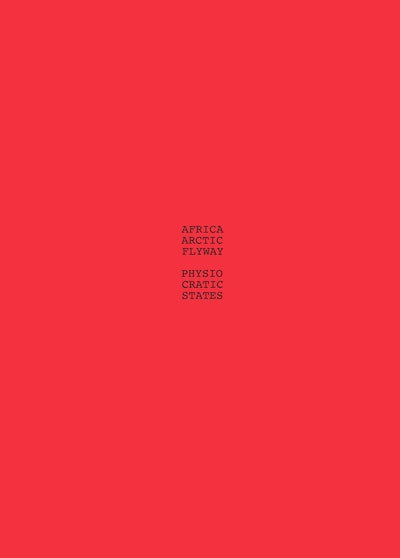What if art holds the solution to the unfolding ecological and economic crises of our time? For more than forty-five years, Peter Fend has argued that art premonitions material culture, therefore the means of production, ensuing changes in social relations. Hence, in his view, works by Marcel Duchamp, Carolee Schneemann, Mary Beth Edelson, Paul Sharits, and others, can prefigure ecological restoration and cohabitation. In the late 1970s, artists in New York initiated teams—first Colab, The Offices, and later Ocean Earth and Space Force—to move from critique into effecting real-world change. Initiatives came from Jenny Holzer, Coleen Fitzgibbon, Taro Suzuki, Joan Waltemath, and Eve Vaterlaus, among others, who linked up with scientists to produce reports and analyses with satellite imagery for news media.
Africa-Arctic Flyway: Physiocratic States gathers documents of Peter Fend’s efforts through Ocean Earth for a planet organized according to hydrology—water basins—rather than national and colonial borders. It lays out tools and technologies derived from art, architecture, and science to replace fossil fuels, dams, nuclear industry, and industrial farming. The ensuing proposal for governance builds on what is identified as the first school of economic thought: physiocracy. Here, via satellite-aided eco-taxation, governance pursues an increase in the numbers of fish, marine mammals, migratory birds, and insects. For instance, ideas from Earth art are applied to restoring wetlands and flyways in three swaths—the Americas, East Asia, and Eurafrica—converging on the Arctic. This book focuses on the Eurafrica flyway and surveys four decades of work. It asks, “How do we go from visual art to reality?” Fend answers: “Through architecture.”
